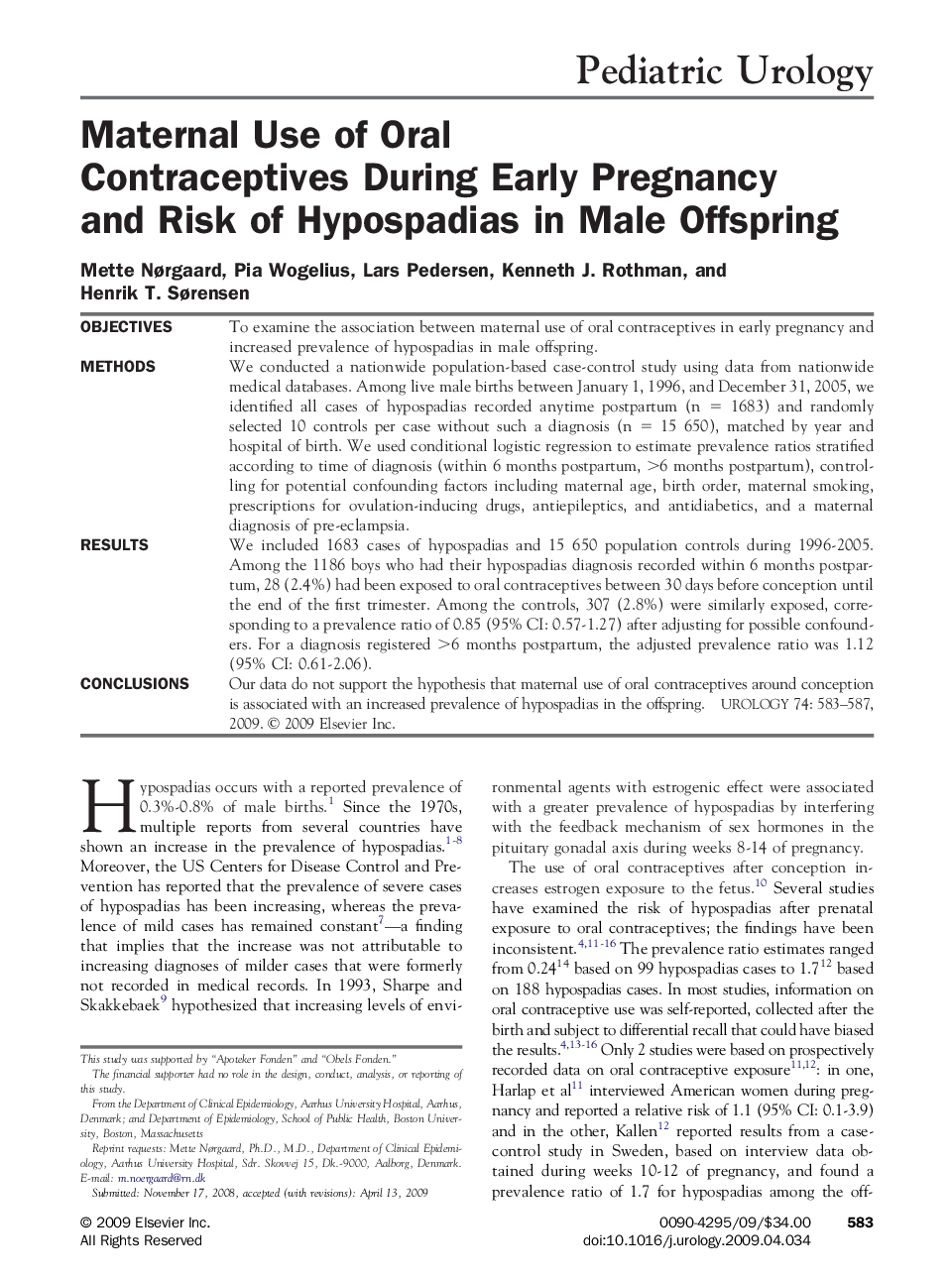| Article ID | Journal | Published Year | Pages | File Type |
|---|---|---|---|---|
| 3904054 | Urology | 2009 | 5 Pages |
ObjectivesTo examine the association between maternal use of oral contraceptives in early pregnancy and increased prevalence of hypospadias in male offspring.MethodsWe conducted a nationwide population-based case-control study using data from nationwide medical databases. Among live male births between January 1, 1996, and December 31, 2005, we identified all cases of hypospadias recorded anytime postpartum (n = 1683) and randomly selected 10 controls per case without such a diagnosis (n = 15 650), matched by year and hospital of birth. We used conditional logistic regression to estimate prevalence ratios stratified according to time of diagnosis (within 6 months postpartum, >6 months postpartum), controlling for potential confounding factors including maternal age, birth order, maternal smoking, prescriptions for ovulation-inducing drugs, antiepileptics, and antidiabetics, and a maternal diagnosis of pre-eclampsia.ResultsWe included 1683 cases of hypospadias and 15 650 population controls during 1996-2005. Among the 1186 boys who had their hypospadias diagnosis recorded within 6 months postpartum, 28 (2.4%) had been exposed to oral contraceptives between 30 days before conception until the end of the first trimester. Among the controls, 307 (2.8%) were similarly exposed, corresponding to a prevalence ratio of 0.85 (95% CI: 0.57-1.27) after adjusting for possible confounders. For a diagnosis registered >6 months postpartum, the adjusted prevalence ratio was 1.12 (95% CI: 0.61-2.06).ConclusionsOur data do not support the hypothesis that maternal use of oral contraceptives around conception is associated with an increased prevalence of hypospadias in the offspring.
